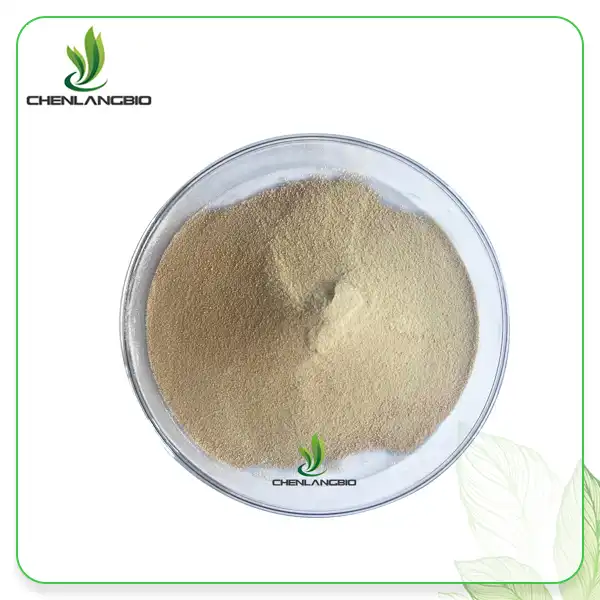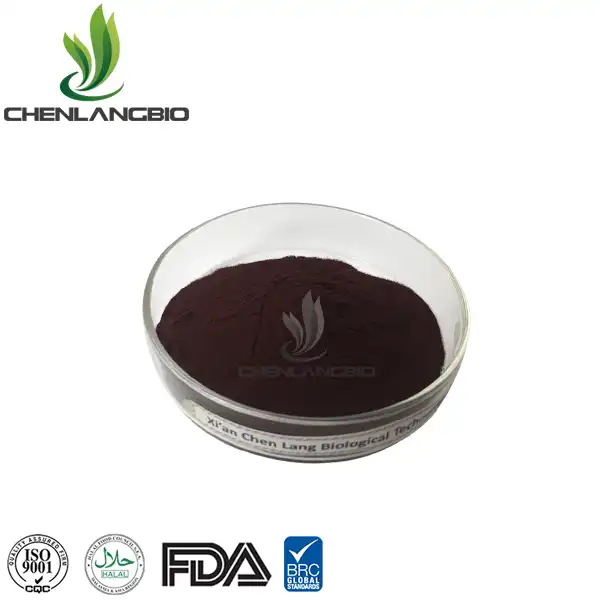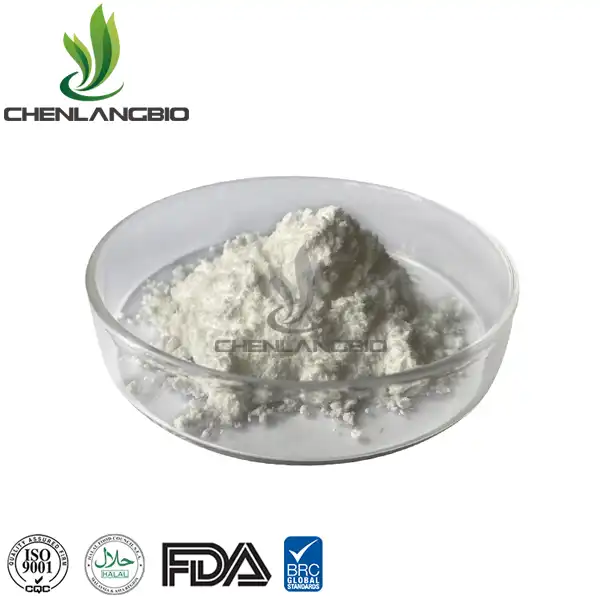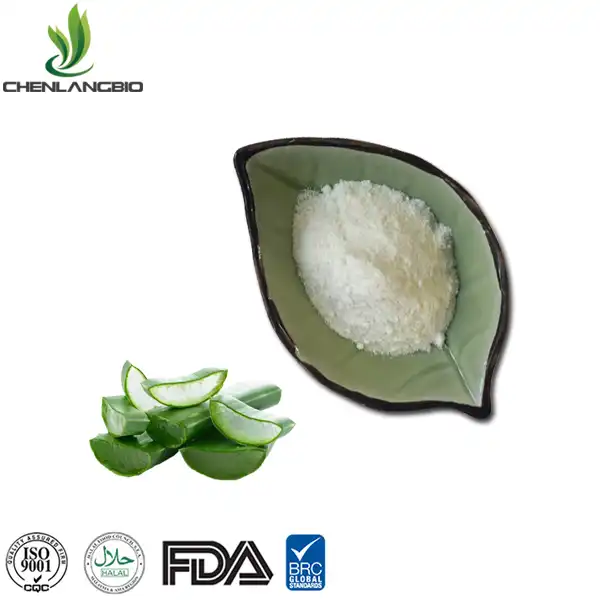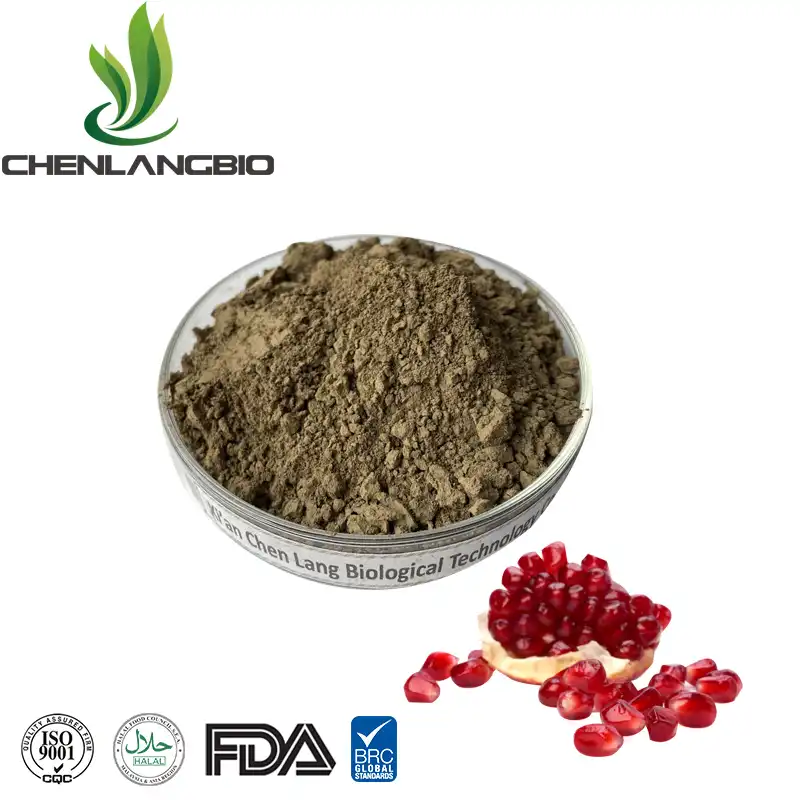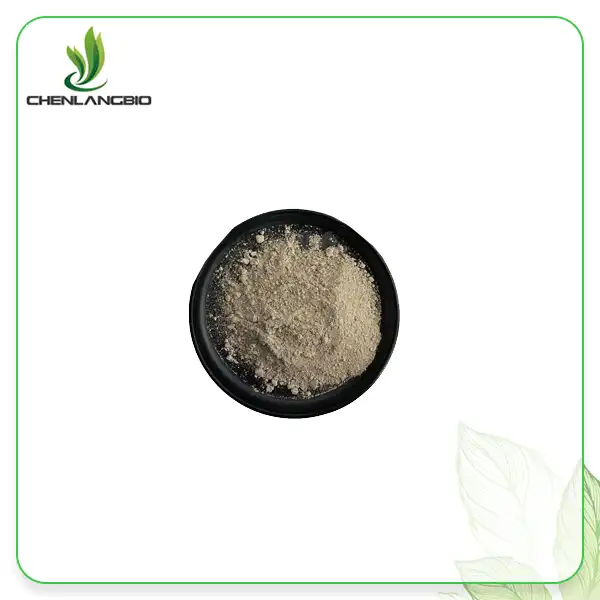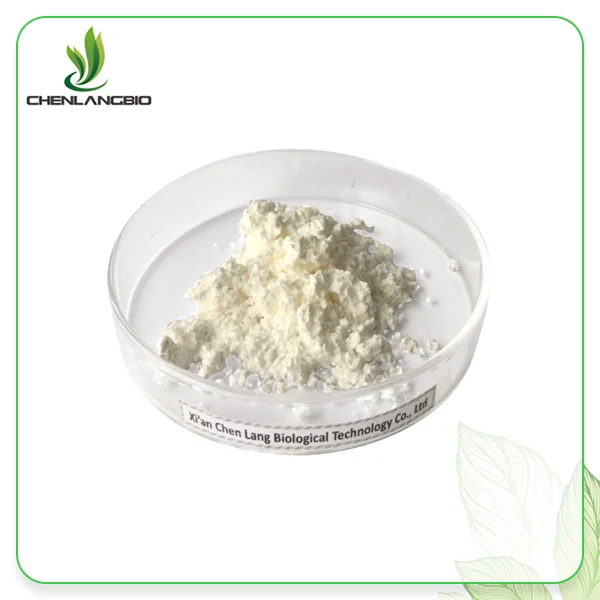Does Bakuchiol Actually Work?
2024-08-09 15:20:22
In the skincare industry, bakuchiol has gained a lot of interest as a plant-based retinol substitute. Bakuchiol is becoming more and more common in skincare products since it is said to have comparable anti-aging and skin-renewing properties without the irritation that comes with them. Does bakuchiol, however, truly function? In order to ascertain bakuchiol's effectiveness, this blog will examine the science underlying it, as well as its advantages and user experiences.
What Is Bakuchiol and How Does It Work?
A naturally occurring substance called bakuchiol is taken from the seeds and leaves of the Psoralea corylifolia plant.Although it has been used for millennia in traditional medicine, its retinol-like properties are what have made it so popular in modern cosmetics.
1. How Does Bakuchiol Compare to Retinol?
Because of its anti-aging qualities, retinol is a commonly used component in skincare products.It improves skin texture and minimizes wrinkles by encouraging cell turnover and collagen formation.Retinol, however, especially in cases of sensitive skin, might result in irritation, redness, and peeling.Similar advantages are provided by bauchiol, which is considerably kinder to the skin.
Bakuchiol vs. Retinol:
Cell Turnover: Both bakuchiol and retinol increase cell turnover, which helps to shed dead skin cells and promote the growth of new ones.
Collagen Production: Bakuchiol stimulates collagen production, leading to firmer, more elastic skin.
Anti-inflammatory: Unlike retinol, bakuchiol has anti-inflammatory properties, making it suitable for sensitive skin types.
Studies have shown that bakuchiol is as effective as retinol in reducing signs of aging without causing irritation.
2. What Are the Benefits of Using Bakuchiol?
Bakuchiol offers a range of benefits that make it a versatile and valuable addition to any skincare routine.
Anti-Aging: Bakuchiol helps reduce the appearance of fine lines and wrinkles by promoting collagen production and improving skin elasticity.
Even Skin Tone: It helps in reducing hyperpigmentation and evens out skin tone, resulting in a brighter complexion.
Acne Control: Bakuchiol’s antibacterial and anti-inflammatory properties make it effective in treating acne and preventing future breakouts.
Gentle on Skin: Suitable for all skin types, including sensitive and reactive skin, bakuchiol does not cause the irritation commonly associated with retinol.
3. How Should Bakuchiol Be Incorporated into a Skincare Routine?
To maximize the benefits of bakuchiol, it’s essential to incorporate it correctly into your skincare routine.
Start Slow: Begin by using bakuchiol once or twice a week and gradually increase the frequency as your skin builds tolerance.
Combination with Other Products: Bakuchiol can be used in conjunction with other skincare products like hyaluronic acid, niacinamide, and antioxidants. Avoid using it with strong exfoliants or other retinoids initially.
Day and Night Use: Unlike retinol, bakuchiol is not photosensitive, meaning it can be used both in the morning and at night. Always follow with sunscreen during the day to protect your skin from UV damage.
4. Are There Any Side Effects of Using Bakuchiol?
While bakuchiol is generally well-tolerated, it’s important to be aware of potential side effects and how to mitigate them.
Initial Purging: Similar to retinol, bakuchiol can cause an initial purging phase where underlying congestion comes to the surface. This is temporary and usually subsides within a few weeks.
Patch Testing: To avoid adverse reactions, perform a patch test before incorporating bakuchiol into your routine. Apply a small amount to a discreet area and monitor for 24-48 hours.
Allergic Reactions: Although rare, some individuals may experience allergic reactions. Discontinue use if you notice severe redness, itching, or swelling.
5. What Do Experts and Users Say About Bakuchiol?
Expert opinions and user reviews provide valuable insights into the efficacy of bakuchiol.
Dermatologists: Many dermatologists praise bakuchiol for its gentle yet effective anti-aging properties. They recommend it as an alternative to retinol, especially for those with sensitive skin.
User Reviews: A large number of consumers express satisfaction with bakuchiol, including less wrinkles, fewer breakouts, and improved skin texture. However, depending on unique skin types and circumstances, outcomes may differ.
How Does Bakuchiol Compare to Other Skincare Ingredients?
It's useful to contrast bakuchiol with other well-known compounds in order to comprehend its role in the cosmetics industry.
1. Bakuchiol vs. Vitamin C
Bakuchiol is highly regarded for its anti-aging and anti-inflammatory properties, while vitamin C is well-known for its antioxidant and brightening properties.A skincare regimen that incorporates these components may be effective.
2. Bakuchiol vs. Hyaluronic Acid
Hyaluronic acid is a hydrating powerhouse that attracts moisture to the skin, whereas bakuchiol focuses on cell turnover and anti-aging. Using these ingredients together can enhance overall skin health and appearance.
3. Bakuchiol vs. Retinoids
While retinoids (including retinol) are powerful anti-aging ingredients, they can be irritating for some skin types. Bakuchiol offers similar benefits without the harsh side effects, making it a gentler alternative.
4. Bakuchiol vs. AHAs/BHAs
Alpha hydroxy acids (AHAs) and beta hydroxy acids (BHAs) are exfoliants that promote cell turnover and clear pores. Bakuchiol can be used alongside these acids but should be introduced gradually to avoid over-exfoliation.
5. Bakuchiol vs. Peptides
Peptides support collagen production and improve skin elasticity. Bakuchiol also boosts collagen and can be combined with peptides for enhanced anti-aging benefits.
What Do Clinical Studies Say About Bakuchiol?
Clinical studies provide a scientific basis for bakuchiol's benefits and efficacy.
1. Anti-Aging Properties
A study published in the British Journal of Dermatology found that bakuchiol significantly reduced wrinkle surface area and hyperpigmentation without causing irritation, similar to retinol.
2. Acne Treatment
Research indicates that bakuchiol’s antibacterial properties help reduce acne-causing bacteria and inflammation, leading to fewer breakouts.
3. Skin Elasticity and Firmness
Studies show that bakuchiol can improve skin elasticity and firmness by promoting collagen synthesis, resulting in a more youthful appearance.
4. Overall Skin Health
Clinical trials demonstrate that bakuchiol supports overall skin health by reducing oxidative stress and inflammation, leading to healthier, more resilient skin.
5. Long-Term Use
Long-term studies indicate that bakuchiol remains effective and gentle over prolonged use, making it suitable for continuous skincare routines.
How to Choose the Right Bakuchiol Product?
Choosing the right bakuchiol product is crucial for achieving the desired skincare benefits.
1. Formulation
Look for products with a high concentration of bakuchiol for maximum efficacy. Ensure the formulation is suitable for your skin type and free from potential irritants.
2. Complementary Ingredients
Opt for products that include complementary ingredients like hyaluronic acid, niacinamide, and antioxidants to enhance the benefits of bakuchiol.
3. Product Type
Bakuchiol is available in various forms, including serums, creams, and oils. Choose a product type that fits well into your existing skincare routine.
4. Brand Reputation
Purchase from reputable brands known for their quality and efficacy. Check reviews and consult with dermatologists if necessary.
5. Price vs. Quality
While cost should be taken into account, pay attention to the product's quality and formulation instead. A more expensive product could provide greater outcomes and longer-lasting advantages.
Conclusion
Bakuchiol has shown to be a successful and mild substitute for retinol, providing many of the same advantages without the irritant side effects. You may take advantage of bakuchiol's anti-aging, acne-fighting, and skin-renewing properties by knowing how to include it into your skincare regimen, weighing it against other components, and selecting the best product. For further individualized guidance or product suggestions, send an email to admin@chenlangbio.com.
References
Healthline | What Is Bakuchiol and How Does It Benefit Your Skin?
Byrdie | Everything You Need to Know About Bakuchiol.
Allure | Bakuchiol: The Plant-Based Retinol Alternative.
Journal of Clinical and Aesthetic Dermatology | Effects of Bakuchiol on Skin.
British Journal of Dermatology | Comparing Bakuchiol and Retinol.
Glamour | How to Use Bakuchiol in Your Skincare Routine.
Marie Claire | The Best Bakuchiol Products.
Good Housekeeping | Benefits of Bakuchiol for Skin.
Vogue | Why Bakuchiol Is a Skincare Must.
Dermstore | Understanding Bakuchiol and Its Benefits.
Send Inquiry
Related Industry Knowledge
- Podophyllin Powder: A Complete Guide
- What Is Meglumine Powder and How Does It Work?
- What Does Centella Asiatica Extract Do for Skin
- Future Trends of Sodium Methylesculetin Acetate in Healthcare
- Isobutylamido Thiazolyl Resorcinol: A Powerful Brightening Agent
- Is Dimethylmethoxy Chromanol Safe for Skin
- What are Praziquantel Tablets for
- What is the difference between cinnamon powder and Pure Cinnamon Bark Extract
- Why to Buy Fisetin Powder Discover the Fisetin Benefits and Connect with Us
- Unlocking the Benefits: Understanding the Uses of Indole-3-Carbinol




